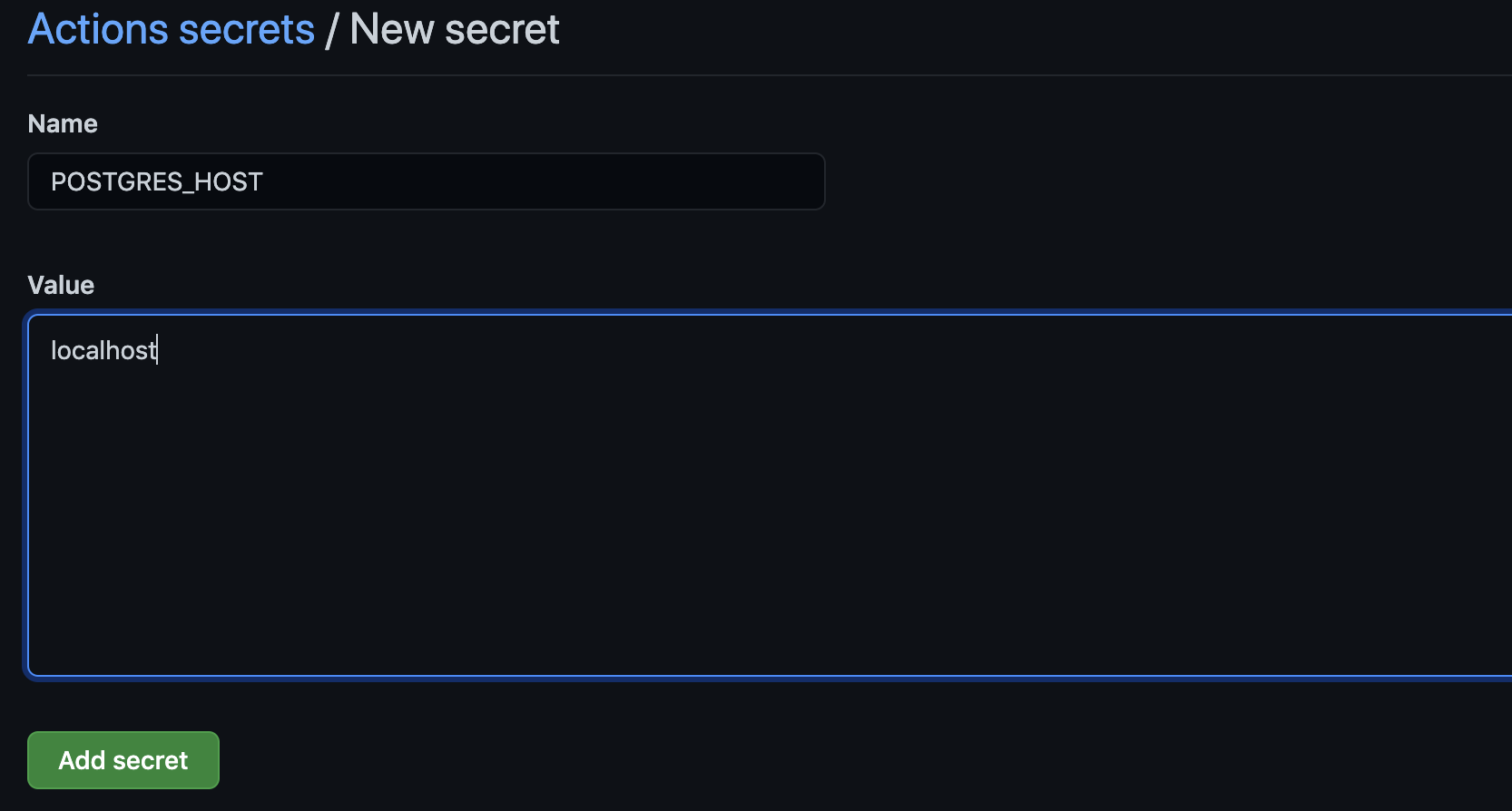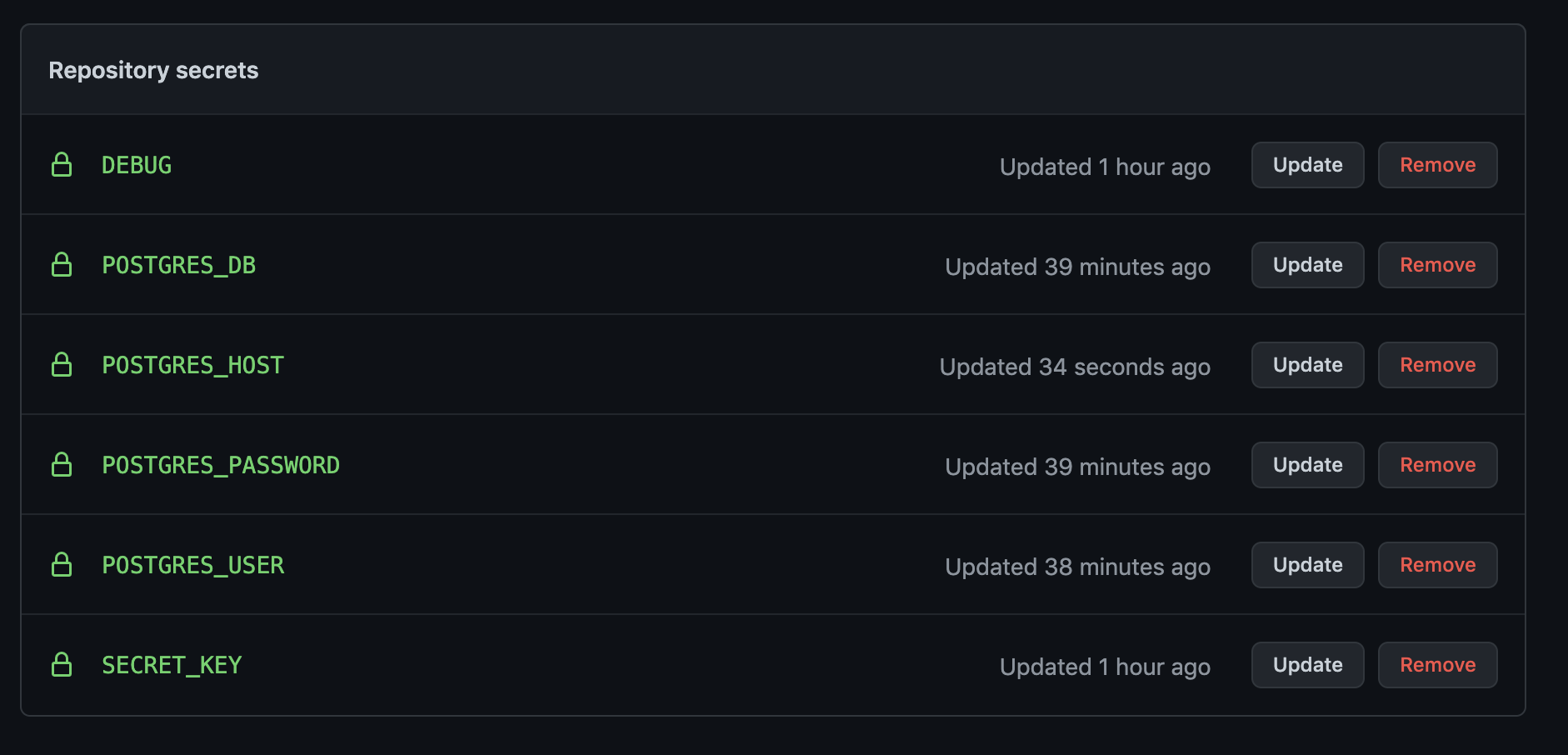I'm currently working on a website right now on Django. On my computer, I am running it on Docker with a postgres database. Here's the docker-compose file I have:
version: '3'
services:
db:
image: postgres
environment:
- POSTGRES_DB=postgres
- POSTGRES_USER=postgres
- POSTGRES_PASSWORD=postgres
web:
build: .
volumes:
- .:/usr/src/app
ports:
- "8000:8000"
And here's the relevant part in settings.py
DATABASES = {
'default': {
'ENGINE': 'django.db.backends.postgresql',
'NAME': 'postgres',
'USER': 'postgres',
'PASSWORD': 'postgres',
'HOST': 'db',
'PORT': 5432,
}
}
When I run my tests in the docker container with this setup, it works find and the tests run. However, in github actions, it doesn't work. Here's my workflow file:
name: Django CI
on: push
jobs:
build:
runs-on: ubuntu-latest
strategy:
max-parallel: 4
matrix:
python-version: [3.7, 3.8]
services:
db:
image: postgres
env:
POSTGRES_DB: postgres
POSTGRES_USER: postgres
POSTGRES_PASSWORD: postgres
ports:
- 5432:5432
steps:
- uses: actions/checkout@v2
- name: Set up Python ${{ matrix.python-version }}
uses: actions/setup-python@v1
with:
python-version: ${{ matrix.python-version }}
- name: Install Dependencies
run: |
python -m pip install --upgrade pip
pip install -r requirements.txt
- name: Run Tests
run: |
python manage.py test
When this runs in github actions, I get the following error:
django.db.utils.OperationalError: could not translate host name "db" to address: Temporary failure in name resolution
Could someone please help me with this, and please let me know if you need anymore code.



localhost? – EousModuleNotFoundError: No module named 'localhost:8000'. I think that maybe you can't specify localhost in tests? – Chokefull